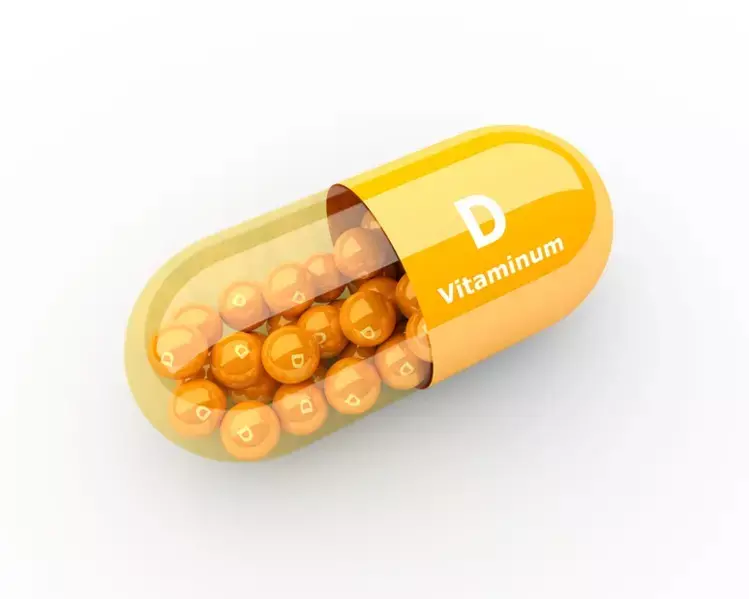- Home
- Medical news & Guidelines
- Anesthesiology
- Cardiology and CTVS
- Critical Care
- Dentistry
- Dermatology
- Diabetes and Endocrinology
- ENT
- Gastroenterology
- Medicine
- Nephrology
- Neurology
- Obstretics-Gynaecology
- Oncology
- Ophthalmology
- Orthopaedics
- Pediatrics-Neonatology
- Psychiatry
- Pulmonology
- Radiology
- Surgery
- Urology
- Laboratory Medicine
- Diet
- Nursing
- Paramedical
- Physiotherapy
- Health news
- Fact Check
- Bone Health Fact Check
- Brain Health Fact Check
- Cancer Related Fact Check
- Child Care Fact Check
- Dental and oral health fact check
- Diabetes and metabolic health fact check
- Diet and Nutrition Fact Check
- Eye and ENT Care Fact Check
- Fitness fact check
- Gut health fact check
- Heart health fact check
- Kidney health fact check
- Medical education fact check
- Men's health fact check
- Respiratory fact check
- Skin and hair care fact check
- Vaccine and Immunization fact check
- Women's health fact check
- AYUSH
- State News
- Andaman and Nicobar Islands
- Andhra Pradesh
- Arunachal Pradesh
- Assam
- Bihar
- Chandigarh
- Chattisgarh
- Dadra and Nagar Haveli
- Daman and Diu
- Delhi
- Goa
- Gujarat
- Haryana
- Himachal Pradesh
- Jammu & Kashmir
- Jharkhand
- Karnataka
- Kerala
- Ladakh
- Lakshadweep
- Madhya Pradesh
- Maharashtra
- Manipur
- Meghalaya
- Mizoram
- Nagaland
- Odisha
- Puducherry
- Punjab
- Rajasthan
- Sikkim
- Tamil Nadu
- Telangana
- Tripura
- Uttar Pradesh
- Uttrakhand
- West Bengal
- Medical Education
- Industry
Vitamin D supplementation does not hamper kidney function in adults with prediabetes

Among persons with prediabetes, who were not preselected on the basis of serum 25(OH)D concentration, vitamin D supplementation did not affect progression kidney disease scores and did not have a meaningful effect on change in urine albumin-to-creatinine ratio, suggests a recent study published in the Clinical Journal of American Society of Nephrology.
Low serum 25-hydroxyvitamin D (25[OH]D) concentration has been associated with higher levels of proteinuria and lower levels of eGFR in observational studies.
Sun H. Kim and colleagues from the Division of Endocrinology, Gerontology and Metabolism, Department of Medicine, Stanford University School of Medicine, Stanford, California investigated the effect of vitamin D supplementation on kidney outcomes in a population with prediabetes.
Overweight/obese adults with high risk for type 2 diabetes were randomized to vitamin D3 4000 IU per day versus placebo. Median duration of treatment was 2.9 years (interquartile range 2.0–3.5 years).
Kidney outcomes included (1) worsening in Kidney Disease: Improving Global Outcomes (KDIGO ) risk score (low, moderate, high, very high) on two consecutive follow-up visits after the baseline visit and (2) mean changes in eGFR and urine albumin-to-creatinine ratio (UACR).
The following findings were observed-
a. Among 2166 participants (mean age 60 years, body mass index 32 kg/m2, serum 25(OH)D 28 ng/ml, eGFR 87 ml/min per 1.73 m2, UACR 11 mg/g, 79% with hypertension), 10% had moderate, high, or very high KDIGO risk score.
b. Over a median follow-up of 2.9 years, there were 28 cases of KDIGO worsening in the vitamin D group and 30 in the placebo group (hazard ratio, 0.89; 95% confidence interval [95% CI], 0.52 to 1.52]).
c. Mean difference in eGFR from baseline was −1.0 ml/min per 1.73 m2 (95% CI, −1.3 to −0.7) in the vitamin D group and −0.1 ml/min per 1.73 m2 (95% CI, −0.4 to 0.2) in the placebo group; between-group difference was −1.0 ml/min per 1.73 m2 (95% CI, −1.4 to −0.6).
d. Mean difference in UACR was 2.7 mg/g (95% CI, 1.2 to 4.3) in the vitamin D group and 2.0 (95% CI, 0.5 to 3.6) in the placebo group; between-group difference was 0.7 mg/g (95% CI, −1.5 to 2.9).
As a result, the authors concluded that among persons with prediabetes, who were not preselected on the basis of serum 25(OH)D concentration, vitamin D supplementation did not affect progression of KDIGO risk scores and did not have a meaningful effect on change in urine albumin-to-creatinine ratio.
https://doi.org/10.2215/CJN.00420121
Dr. Nandita Mohan is a practicing pediatric dentist with more than 5 years of clinical work experience. Along with this, she is equally interested in keeping herself up to date about the latest developments in the field of medicine and dentistry which is the driving force for her to be in association with Medical Dialogues. She also has her name attached with many publications; both national and international. She has pursued her BDS from Rajiv Gandhi University of Health Sciences, Bangalore and later went to enter her dream specialty (MDS) in the Department of Pedodontics and Preventive Dentistry from Pt. B.D. Sharma University of Health Sciences. Through all the years of experience, her core interest in learning something new has never stopped. She can be contacted at editorial@medicaldialogues.in. Contact no. 011-43720751
Dr Kamal Kant Kohli-MBBS, DTCD- a chest specialist with more than 30 years of practice and a flair for writing clinical articles, Dr Kamal Kant Kohli joined Medical Dialogues as a Chief Editor of Medical News. Besides writing articles, as an editor, he proofreads and verifies all the medical content published on Medical Dialogues including those coming from journals, studies,medical conferences,guidelines etc. Email: drkohli@medicaldialogues.in. Contact no. 011-43720751


